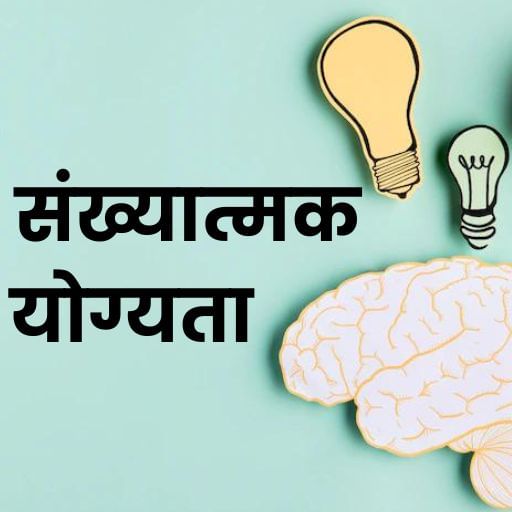Human Capital and Economic Growth | Economics Optional Notes for UPSC PDF Download
| Table of contents |

|
| Introduction |

|
| Sources of Human Capital Formation |

|
| Role of Human Capital on Economic Growth |

|
| Problems of Human Capital Formation |

|
Introduction
To produce more human capital from resources, we need to invest in human capital. The process of adding to the stock of human capital over time is known as Human Capital Formation. In other words, Human capital formation is the process of acquiring and expanding the number of competent, educated, and experienced people who are essential to the country’s economic, social, and political development. Thus, human capital formation is associated with an investment in human beings and their development as a creative and productive resources.
For example, if at the beginning of the year, a country’s human capital stock includes 40 lakh skilled workers and at the end, it increases to 45 lakh skilled workers, then there is human capital formation to the extent of 5 lakh skilled workers in a year.
Sources of Human Capital Formation
Human capital of a country can be increased with the help of different ways. Some of the sources of human capital formation are as follows:
1. Expenditure on Education
Proper utilisation of manpower depends completely on the education system and training of people. An educated person can earn more income than an uneducated person because the former’s labour skill is more than that of the latter. The economists believed that in order to accelerate the development process, it is essential to expand education opportunities among people. Besides, spending money on education by people is same as the companies spending money on capital goods. People invest in their education so they can increase their future income and raise their standard of living. Therefore, the most effective way to improve and enlarge the size of the nation’s productive workforce is to invest in education, as it turns human beings into human capital.
Countries and people spend money on education with the objective of:
- Enhancing their potential earnings.
- Producing technological expertise and human resources that are ideal for boosting labour productivity and thus, supporting the rapid development of the economy.
- Getting better social standing and pride.
- Facilitating adaptation of new technologies.
- Improving their ability to make better life choices, and
- Stimulating innovation.
2. Expenditure on Health
Complete physical, mental, and social well-being is a condition of being in good health. The quality of the manpower is negatively impacted by poor health and underemployment because sick workers who lack access to medical facilities are compelled to take time off of work, which reduces productivity. The quality of human capital improves when individuals have access to enough food and good nutrition, as well as adequate health and sanitation services. Therefore, a healthy person makes a more substantial GDP contribution than a sick person.
The different forms of health expenditure consist of money spent on the following:
- Good sanitation facilities,
- Provision of clean drinking water,
- Social Medicine (Spread of health literacy),
- Curative Medicine (Medical intervention during illness), and
- Preventive Medicine (Vaccination).
3. On-the-Job Training
As we already know that improvement in human capital automatically improves the productivity of physical capital. Therefore, many firms invest in on-the-job training for their employees. This training can be provided to the employees at a fast pace and without incurring much cost. This training helps in increasing the skill and efficiency of the employees, resulting in an increase in the production of goods and labour productivity. Besides, the employees can have updated knowledge of the latest changes in their field.
Thus, On-the-job training is an essential source of human capital formation as the return on investment in the form of increased labour productivity is greater than the cost. This can happen in several forms:
- Workers may be trained in the firm under the supervision of a qualified worker, or
- Workers can be sent off-campus for training.
Firms incur costs in each of these scenarios. Once the training is over, the firms require their workers to work for a set amount of time in order to enjoy the benefits of increased production.
4. Expenditure on Migration
People migrate in search of occupations that pay more than what they earn in their home places. For example, Engineers and physicians migrate to other countries in search of a higher salaried job. Unemployment is the driving force behind rural-urban migration in India. It means that unemployed people from rural areas move to urban areas in search of jobs. Similarly, technically qualified people like doctors, professors, engineers, etc., migrate to other countries in search of a job with a higher salary. In both cases, migration entails the expense of transportation, the greater cost of living in the migrated location, and the psychological costs of living in an unfamiliar socio-cultural setup.
5. Expenditure on Information
People spend money to learn about the labour market and educational institutions. For example, people need information regarding different salary levels associated with different types of jobs, etc. This type of information is required to make decisions about education investment as well as to make optimal use of learned skills and help people to realise their productive potential. Thus, expenditure on acquiring information regarding labour markets and other sectors, such as education and health is a source of human capital formation.
Role of Human Capital on Economic Growth
- Human Capital and Economic Growth are two related concepts of Human Capital Formation. A measure of labour’s capabilities, including skills, working capacity, education, health, and intelligence, is referred to as Human Capital. The concept of human capital emphasises the idea that not every resource is created equal, but that this difference may be covered with the right training and funding.
- However, Economic Growth refers to an increase in a country’s real national income. An educated person makes a greater contribution to economic growth than an illiterate person. Similarly, a healthy person contributes to a longer period of uninterrupted labour supply, which supports economic growth. Thus, a person’s ability to generate income can be increased by different factors like education, health, on-the-job training, job market information, and migration.
- Human Capital Formation refers to the process that involves the addition of the country’s stock of skilled and capable people over time. It is the process of obtaining and increasing the number of people with the necessary knowledge, training, and experience. Human capital formation is linked with investment in people and their development as productive and creative resources.
- Human Capital Formation encourages inventions, innovations, and advancements in technology.
- Human capital formation (HCF) promotes innovation and creates the capacity to absorb new technologies in addition to increasing the productivity of human resources. Education offers information to understand changes in society and advancements in science, which facilitated inventions and innovations. Similarly, access to the educated labour force helps in adaption to new technology.
 |
Download the notes
Human Capital and Economic Growth
|
Download as PDF |
Challenging to show Cause and Effect Relation between Human Capital and Economic Growth.
- It is difficult to prove that rise in human capital causes economic growth due to several measurement issues. For instance, determining the quality of education by considering the number of years of schooling, the teacher-to-student ratio, or enrolment rates may not accurately reflect the quality of education. In the same way, mortality rates, life expectancy, and health services assessed in monetary terms might not accurately depict the real status of health of the people in a country.
- It means that it is difficult to establish a cause-and-effect relationship between growth in human capital (education and health) and economic growth. However, the development of one sector has contributed to the development of all the others.
The relationship between human capital and economic growth can flow in either direction:- High levels of human capital are built as a result of higher income; and
- Income increases with the rise in the level of human capital.
Human Capital Formation: Need of the Hour
- According to National Education Policy 2020, the world is changing quickly in terms of the knowledge landscape. Many unskilled jobs may be taken over by machines as a result of many dramatic, scientific, and technological advancements. Thus there is an urgent need and high demand for a skilled workforce, specifically involving mathematics, computer science, and data science, as well as multidisciplinary skills in the sciences, social sciences, and humanities.
- In addition, climate change will result in a significant shift in how to meet the world’s energy, water, food, and sanitation needs, which requires the need for new skilled labour, particularly in biology, chemistry, physics, agriculture, climate science, and social science.
- The increasing appearance of epidemics and pandemics requires collaborative research in infectious disease management and vaccine development, as well as the resulting socioeconomic issues require the need for multidisciplinary learning. As India moves forward to being a developed country and one of the three greatest economies in the world, there will be a rising demand for humanities and the arts. This policy vision shows how India’s economy will move to a higher growth trajectory based on the knowledge landscape with the formation of human capital.
- India has always recognised the significance of human capital in achieving economic growth. Human capital has been assigned a critical role in any development strategy, particularly in a large population country. A well-educated and well-trained population can be an asset in accelerating economic growth and ensuring social change in the desired direction.
Problems of Human Capital Formation
- To produce more human capital from resources, we need to invest in human capital. The process of adding to the stock of human capital over time is known as Human Capital Formation. In other words, Human capital formation is the process of acquiring and expanding the number of competent, educated, and experienced people who are essential to the country’s economic, social, and political development. Thus, human capital formation is associated with an investment in human beings and their development as a creative and productive resources.
- For example, if at the beginning of the year, a country’s human capital stock includes 40 lakh skilled workers and at the end, it increases to 45 lakh skilled workers, then there is human capital formation to the extent of 5 lakh skilled workers in a year. Despite its various advantages, human capital formation faces numerous problems.
Some of the problems of human capital formation are as follows:
- Insufficient Resources: The resources required for the formation of human capital are much more than what’s available. Therefore, the facilities required for human capital formation have remained inadequate.
- Brain Drain: People move from one place to another to search for better job opportunities and high salaries than what they are getting at their present job. This migration of people results in the loss of quality people, such as engineers, doctors, etc., with high calibre. In developing countries, these people are already rare and their movement to other countries creates a problem. Also, the cost of losing quality human capital is high.
- Serious Inefficiencies: The capabilities of an educated person are either not getting used (because of unemployment) or are underutilised (because of underemployment), and a lot of society’s resources are getting wasted. Besides this, other inefficiencies like massive illiteracy, poor health and education facilities, non-education of many children, etc., are also creating a problem in human capital formation.
- High Growth of Population: As the population is continuously rising, it is adversely affecting the quality of human capital as it reduces the per head availability of facilities.
- Weak Science and Technology: In terms of education, the performance of human resources is quite unsatisfactory when it comes to science and modern technology development.
- Lack of proper Manpower Planning: There is no proper balance between the demand and supply of human resources in many places. This imbalance is common mostly to the demand and supply of highly skilled personnel. The lack of balance ultimately results in the wastage of resources.
- Several Imbalances: A huge percentage of the resources have been diverted towards higher education; however, such education is meant for a few people. Most people require primary and secondary education, and because of this, the economy’s general productivity is low.
- Long Duration: Developing the skills of human resources takes time as it involves a prolonged process. Therefore, the activity process slows down and fails to meet the demand for human capital at the right place and at the right time.
- High Regional and Gender Inequality: Besides other problems, human capital formation also faces the problem of regional and gender inequality making it difficult to produce more human capital.
- Inadequate On-the-Job Training: On-the-Job Training required by the farmers for the working of advanced tools and equipment is not provided to them in the agricultural field making it difficult for them to learn these tools. This ultimately slows down the process of human capital formation.
|
66 videos|170 docs|73 tests
|
FAQs on Human Capital and Economic Growth - Economics Optional Notes for UPSC
| 1. What is human capital formation? |  |
| 2. What are the sources of human capital formation? |  |
| 3. How does human capital contribute to economic growth? |  |
| 4. What are the problems of human capital formation? |  |
| 5. How does human capital affect economic growth in the context of UPSC? |  |

































